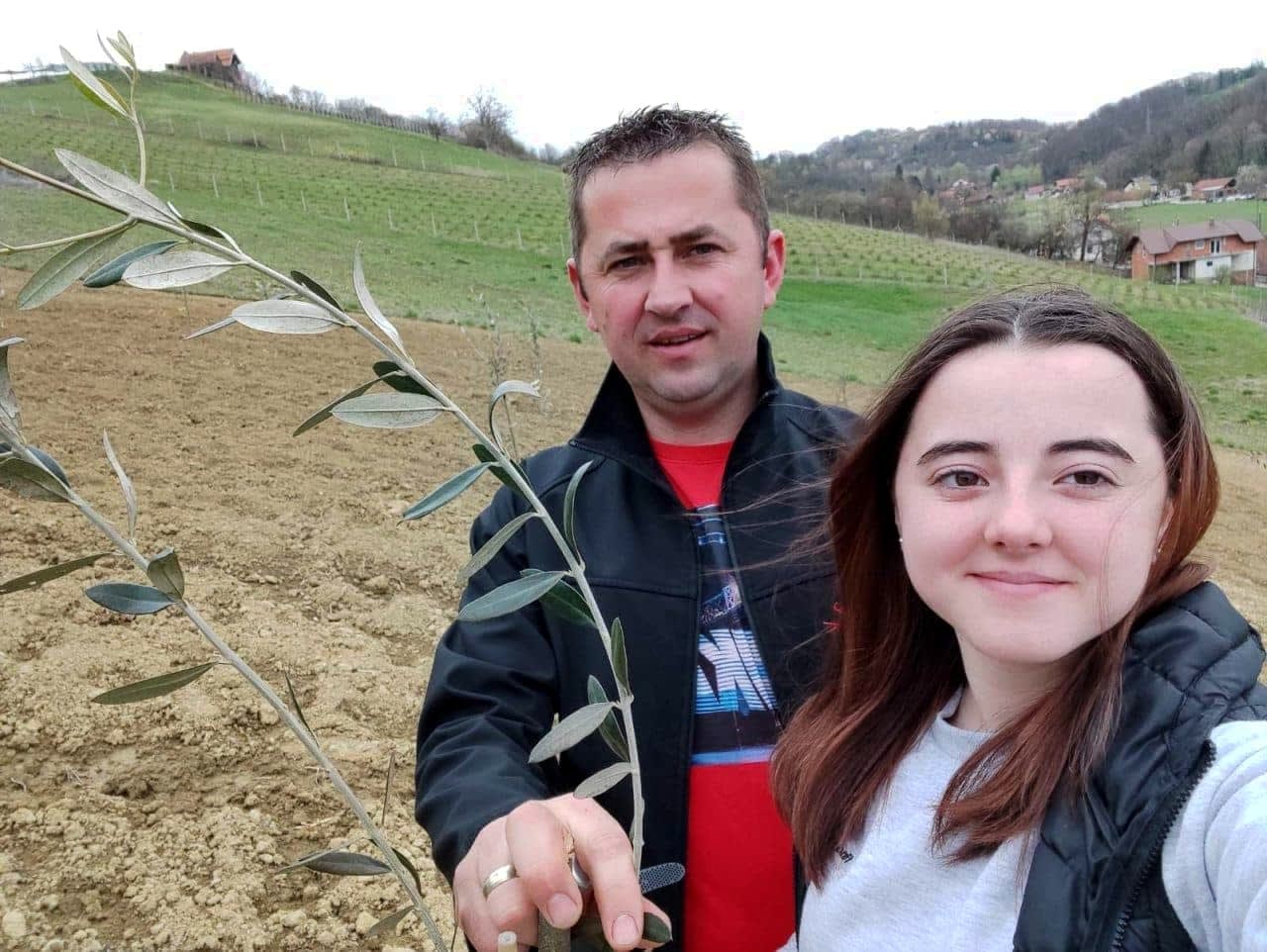On April 7th, the mercury hit 30 ºC in southern Austria, the earliest that the Alpine nation has ever reached what the national weather service describes as a “heat day.”
No one believed that I would succeed.
Yet experts warn that this record could easily be replaced by the end of the decade as climate change results in higher temperatures across Europe.
“It’s getting hotter and drier, and by 2030, temperatures in Austria could resemble today’s in parts of southern Europe,” said Daniel Rössler, Lukas Hecke and Markus Fink, the founders of Agro Rebels Agency.
See Also:Experts Back Olives in a Hotter, Drier WorldThe three co-founders agree the clock cannot be turned back on climate change, but farmers can adapt. So, a few years ago, they started growing Mediterranean fruit trees in Austria, including olives. “The goal is to open up new sources of income for our farmers,” they said.
The three partners test these non-native fruits and vegetables in the field with scientists and grow them in collaboration with farmers. They eventually plan to sell the produce under a single brand.
Their first product is table olives. In 2020, they planted 400 trees near the eastern city of Mörbisch. The first crop of table olives was harvested earlier this season, and olive oil production is planned for next year.
Before the Agro Rebels’ efforts, farmers in other parts of Burgenland, where Mörbisch is located, have been cultivating olives for the past half-decade.
Reini and Angi Pieretti-Eder were among the first to start in 2018, and now they have more than 500 Leccino olive trees in Rust, north of Mörbisch.
The Italian expert who planted the trees explained to the Pieretti-Eders that this variety would be ideal for Burgenland.
There are other olive producers besides the Pieretti-Eders, but there is still no mill for producing olive oil. The pair teamed up with Sabine Haider and Reinhard Pieretti-Eder to transport 131 kilograms of olives to the closest mill in Italy, which yielded 17 liters of olive oil.
The four growers did not expect to make any money, let alone cover production costs. Instead, they are proud to have proven the doubters wrong with their 17 liters of Austrian olive oil.
Meanwhile, 190 kilometers south in northeastern Croatia, climate change has led another farmer to grow olives in Zagorje. “No one believed that I would succeed,” Miro Mraz said.
Less than two years ago, Mraz planted 30 Oblica, Casaliva and San Felice olive trees, which were chosen because they tolerate cold weather.
By July 2023, the Oblica and Casaliva trees were full of fruit, and the first olives in Zagorje’s history were harvested in mid-October.
Mraz celebrated the event with his family and friends. “We picked 26 kilograms of beautiful and healthy fruit for processing into Zagorje’s first olive oil,” he said.
Similarly to the situation in Austria, there is no mill in Zagorje. The nearest one was on the Adriatic island of Krk, more than 150 kilometers away.
Instead of transporting the olives to Krk, he transformed them using a machine that grinds corn into cornmeal and pressed the olive paste with a wine press. The unorthodox process yielded 2.5 liters of virgin olive oil.
Mraz hopes for better results and has planted 63 new Leccino and Pendolino olive trees in the coming years.

Miro Mraz
He also plans to surround Zagorje’s first olive grove with a dry stone wall and build a stone house inside, paying homage to Dalmatia, Croatia’s largest olive-growing region.
Due to climate change, Mraz is unlikely to be the only olive grower in northeastern Croatia in the future as winters become increasingly mild.
Away from Austria and Croatia, recent research from the University of Sassari demonstrates that olive cultivation is expanding faster in northern Italy than in other parts of the country.
In 1992, olive cultivation was present in 54 of 107 agricultural districts of northern Italy. By 2018, the number had increased to 81, a 49-percent increase.
By comparison, the number of agricultural districts with olive cultivation in central and southern Italy increased by four percent and 19 percent, respectively.
While the olive growing surface area was relatively low – just 0.2 percent – in northern Italy, this figure increased by one percent from 1992 to 2018. Meanwhile, olive grove surface area decreased by 0.9 percent in central and southern Italy over the same period.
The research indicated that the trend is likely to continue as the south of the country becomes increasingly hot and dry due to the impacts of climate change.









